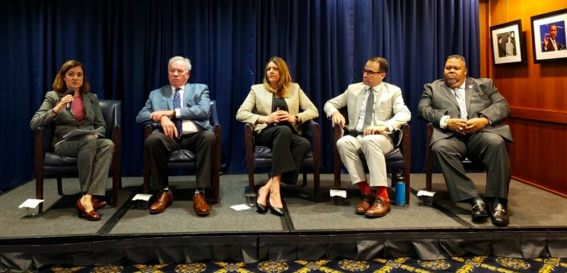Because income-share agreements reduce upfront costs and link programmatic cost to a graduate’s income, they not only make it easier for adult learners to have the freedom to acquire up-to-date job training, but also impose accountability on training providers that government subsidies may not provide.
“What learners really want is a ticket to the middle class,” Vemo CEO Tonio DeSorrento said. “Income-sharing agreements allow good schools to stand out over schools with a good television ad.”
The discussion of the employer-pay model assessed approaches in which employers provide funding for students to acquire skills that will help them on the job—and in the future. Panel participants Guild Education and SV Academy both offer such programs.
These messages shared at both of those events resonate in an era when educational attainment is our greatest lever for social and economic mobility, and individuals born in the 1980s or later have less than a 50 percent chance of doing better economically than their parents. They should signal the potential for common ground at a time when politics and policy tend to divide us. What’s more, they reflect the necessity of having “both/and” conversations about the full range of potential solutions and the policy alternatives that might hinder—or enable—them.




